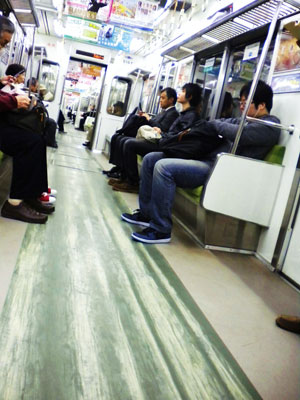All Nonfiction
- Bullying
- Books
- Academic
- Author Interviews
- Celebrity interviews
- College Articles
- College Essays
- Educator of the Year
- Heroes
- Interviews
- Memoir
- Personal Experience
- Sports
- Travel & Culture
All Opinions
- Bullying
- Current Events / Politics
- Discrimination
- Drugs / Alcohol / Smoking
- Entertainment / Celebrities
- Environment
- Love / Relationships
- Movies / Music / TV
- Pop Culture / Trends
- School / College
- Social Issues / Civics
- Spirituality / Religion
- Sports / Hobbies
All Hot Topics
- Bullying
- Community Service
- Environment
- Health
- Letters to the Editor
- Pride & Prejudice
- What Matters
- Back
Summer Guide
- Program Links
- Program Reviews
- Back
College Guide
- College Links
- College Reviews
- College Essays
- College Articles
- Back
Bystanders Should Be Bygones
Everyday, thousands of people will stroll by crime as if it wasn’t even there. They act indifferent towards people in need since they are so sure that somebody else will help. They are known as bystanders, and a bystander is someone who stands by aimlessly and does not give any aid to those who need help. Psychologists have researched this type of apathy and it has been labeled the Bystander Effect. According to psychologists Bibb Latané and John Darley, the more people there are in a certain area, the less likely they are to help (Psychology Today.com). People will instinctively assume that someone else will take care of the problem, since there are so many other people. There have been multiple accounts of onlookers who don’t attempt to get involved when they hear screams, see violence, or witness other wrongdoings, since they don’t take on the responsibility.
The ALS Ice Bucket Challenge is an example of people passing on responsibility. Millions of people were challenged with donating money to the ALS charity, but only thousands donated (ALSA.org). Most people expected the next person to give money, or suspected that there were enough people donating already. This challenge created a continual mentality of ‘someone else will do it’ that spread around the globe. This viral challenge should have generated much more money that it actually did, considering that it was widely popular for over a month.
This inactivity can also encourage bad habits. Some bullies, for example, like to show off to their peers. This means that they will oppress someone while others are present. However, even if a bystanding child thinks that what the bully is doing is wrong, they will inevitably be supporting the oppressor, since they did nothing to stop them. This has the effect of the bully thinking that it is okay to harass and will continue on with the perception that their silent peers are in support of them (Greatschools.org). But the peers have merely passed on the responsibility to another person to deal with, since they don't want to get involved.
What is the solution then? As cliche as it sounds, the answer is you. If you decide to be that someone to stand up, others will soon take your lead. You must lead by example and show everyone what one person is capable of. It is crucial to the healing of social injustices that you, and everyone around you, actively participate in society. Do not assume that someone else will help because the other seven billion people on the planet are assuming the same thing. If everyone took a stand against a social injustice and worked together to defeat it, then, and only then, will the world begin to heal itself.

Similar Articles
JOIN THE DISCUSSION
This article has 0 comments.
